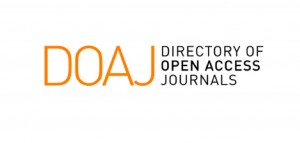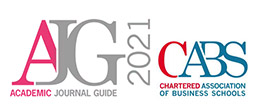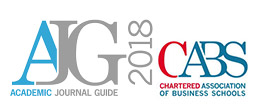Issues
(2024 Issue 2) Management Science in Transition: Challenges for Global Research
(2024 Issue 1) New Perspectives in Global Competition
(2023 Issue 2) New Global Competitive Landscapes
(2023 Issue 1) New Horizons in Global Management
(2022 Issue 2) Global Competition and Sustainability Management
(2022 Issue 1) Emerging Issues of Sustainability Management
(2021 Issue 2) Covid-19. Management Perspectives
(2021 Issue 1) The New European Industrial Strategy: Institutions and Governance
(2020 Issue 2) The New European Industrial Strategy: Companies and Territories
(2020 Issue 1) Circular Economy & New Business Models
(2019 Issue 2) IR 4.0, Network Economies & Stakeholder Engagement
(2019 Issue 1) CSR & Multi-Stakeholder Management
(2018 Issue 2) The 4th Industrial Revolution. Business Model Innovation & Global Competition
(2018 Issue 1) Integrated CSR Management
(2017 Special Issue) Global Tourism Management
(2017 Issue 2) Transparency in Public Administration
(2017 Issue 1) Integrated Corporate Social Responsibility
(2016 Issue 2) Global Tourism and Market Driven Management
(2016 Issue 1) Global Tourism in Global Markets
(2015 Special Issue) Development Policies in Large Retailers
(2015 Special Issue) Fashion and Luxury Management
(2015 Special Issue) Start-Up Ecosystem
(2015 Issue 2) Design Management, Product Engineering and Global Competition
(2015 Issue 1) Smart Specialisation, Global Markets and Innovation Policies
(2014 Issue 2) Global Networks and Sustainable Development-2
(2014 Issue 1) Global Networks and Sustainable Development-1
(2013 Issue 2) Global Networks and Local Development-2
(2013 Issue 1) Global Networks and Local Development-1
(2012 Issue 2) Innovation Management in Global Markets-2
(2012 Issue 1) Innovation Management in Global Markets-1
(2011 Issue 2) Global Cities and Knowledge Management-2
(2011 Issue 1) Global Cities and Knowledge Management-1
(2010 Issue 2) Intangible Assets and Global Competition
(2010 Issue 1) Marketing Channels and Global Markets
(2009 Issue 2) Market-Driven Management and Competitive Customer Value-2
(2009 Issue 1) Market-Driven Management and Competitive Customer Value-1
(2008 Issue 2) Market-Driven Management and Global Markets-2
(2008 Issue 1) Market-Driven Management and Global Markets-1
(2007 Issue 2) Ethics in Global Supply Chains
(2007 Issue 1) Management Consulting and Global Markets
(2006 Issue 2) Communication and Global Markets
(2006 Issue 1) Corporate Governance Communication
(2005 Issue 2) Over-Supply and Global Markets-2
(2005 Issue 1) Over-Supply and Global Markets-1
(2004 Issue 2) Sport Management and Global Markets
(2004 Issue 1) Public Governance and Global Markets
(2003 Issue 2) Marketing Research and Global Markets
(2003 Issue 1) Corporate Responsibility and Market-Space Competition
(2002 Issue 2) Corporate Culture and Market Complexity
(2002 Issue 1) Market-Space Management












